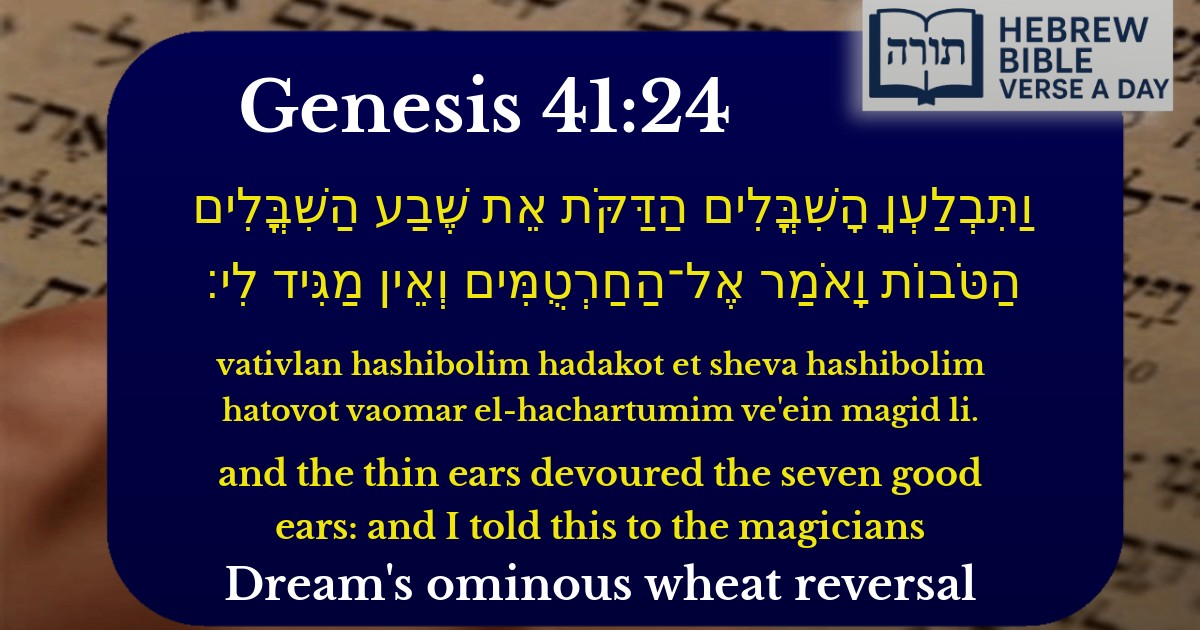Join Our Newsletter To Be Informed When New Videos Are Posted
Join the thousands of fellow Studends who rely on our videos to learn how to read the bible in Hebrew for free!
Hebrew Text
וַתִּבְלַעְןָ הָשִׁבֳּלִים הַדַּקֹּת אֵת שֶׁבַע הַשִׁבֳּלִים הַטֹּבוֹת וָאֹמַר אֶל־הַחַרְטֻמִּים וְאֵין מַגִּיד לִי׃
English Translation
and the thin ears devoured the seven good ears: and I told this to the magicians
Transliteration
Vativlan hashibolim hadakot et sheva hashibolim hatovot vaomar el-hachartumim ve'ein magid li.
Hebrew Leining Text
וַתִּבְלַ֙עְןָ֙ הַשִּׁבֳּלִ֣ים הַדַּקֹּ֔ת אֵ֛ת שֶׁ֥בַע הַֽשִּׁבֳּלִ֖ים הַטֹּב֑וֹת וָֽאֹמַר֙ אֶל־הַֽחַרְטֻמִּ֔ים וְאֵ֥ין מַגִּ֖יד לִֽי׃
וַתִּבְלַ֙עְןָ֙ הַשִּׁבֳּלִ֣ים הַדַּקֹּ֔ת אֵ֛ת שֶׁ֥בַע הַֽשִּׁבֳּלִ֖ים הַטֹּב֑וֹת וָֽאֹמַר֙ אֶל־הַֽחַרְטֻמִּ֔ים וְאֵ֥ין מַגִּ֖יד לִֽי׃
🎵 Listen to leining
Parasha Commentary
📚 Talmud Citations
This verse is not quoted in the Talmud.


Interpretation of the Verse
The verse describes Pharaoh's dream in which the thin, withered ears of grain devour the seven healthy, robust ears. This imagery is part of the prophetic dreams that Yosef (Joseph) later interprets as foretelling seven years of famine following seven years of abundance. The magicians (chartumim) were unable to provide a satisfactory interpretation, setting the stage for Yosef's divinely inspired explanation.
Traditional Jewish Sources
Symbolism of the Ears of Grain
The devouring of the healthy ears by the withered ones symbolizes the severity of the famine, which would be so great that it would "consume" the years of plenty, leaving no trace. This aligns with Yosef's later advice to store grain during the years of abundance to survive the famine.
Spiritual Lessons